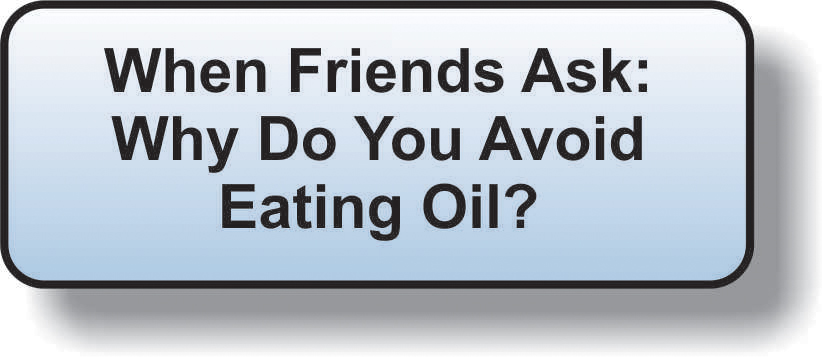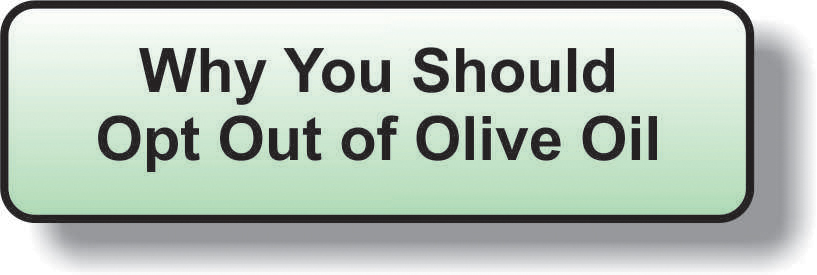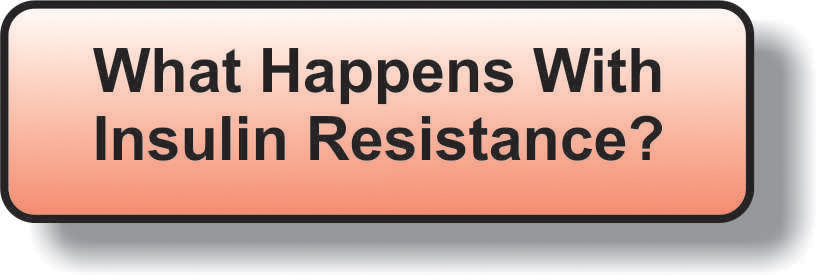WHAT’S WRONG WITH EATING OIL?
Get your fats in Nature’s original package – whole-plant foods!

The primary underpinning of this article is based on an observation of Nature and the Natural Order She intended for our bodies. In Nature, what are the foods She has designed for us to eat? This requires an element of faith in Mother Nature and her wisdom. Our bodies have been evolving for millions of years according to Her plan.
We will attempt to show that bottled oils are not part of Her plan. Nowhere in Nature, do any animals need any more oil that what occurs naturally in their natural food. Horses and cows get all the oil they need to maintain good health from eating grass. Grasses have oil in them! Many primates, our closest biological relatives, eat nothing but fruit and they get all the oil they need. Human and chimpanzee bodies have 98% identical DNA.
Nature also has a plan for human oil consumption which is the eating of plant-based, whole-foods (oil is not a whole food). Being out of harmony with the Natural Plan invites imbalances in health resulting in disease - catastrophic diseases like heart attacks, strokes and diabetes.
Free oils - oil we buy in a bottle like corn oil, safflower oil, olive oil and coconut oil - are very unnatural. They are a highly processed refined food substance like sugar. Nowhere in Nature do these free oils occur – there are no bottles of oil growing on trees.
For millions of years our bodies evolved eating only the oils that occur naturally in plants and most all plants have oil. For example, we extract oil from rose petals, eucalyptus leaves, oregano and there is lots of oil in grains, legumes and vegetables. Even lettuce has oil! The oil that occurs naturally in food is the amount of oil Nature has designed for us to eat. Over millions of years of evolution, our bodies were made to consume and metabolize this amount of oil.
When we use technology and machinery to extract oil from plant sources and grains, we remove it from its natural context and we end up with a highly refined and concentrated substance thus departing from the Natural Order. The consumption of these oils – all extracted refined oils – will undoubtedly lead to health problems over time because they are a departure from Nature’s plan. In addition, oils are the most calorie dense food substance known to man and contribute greatly to obesity. Oil is at best a medicine and at worst a serious toxin.
No Oil -- Not Even Olive Oil!
Caldwell Esselstyn MD
A 4 minute video
Watch the documentary Forks Over Knives.
Oil and Heart Disease
Our arteries are lined with a single layer of cells called endothelial cells and these cells are the most important part of our circulatory system. These cells produce vital molecules of a gas called nitric oxide which is largely responsible for protecting our blood vessels. It maintains a smooth and steady flow of blood. It is the most powerful dilator (expander) of our blood vessels and it inhibits the formation of arterial blockages also known as plaques. They also greatly reduce inflammation which is extremely important. Endothelial cells also provide a barrier between our body tissues and our blood. They are involved in blood clotting, the growth of new blood vessels and the deployment of defensive immune system cells.
Endothelial cells explained - 1.5 minute clip
Processed oils floating in our bloodstream destroy these all-important endothelial cells over time. The result is the buildup of plaques, and the bloom of inflammatory pustules (like pimples on our artery walls) that rupture and form blood clots which, in turn, break away causing heart attacks and strokes.
Reduced endothelial function is a precursor to vascular disease and known as an early occurrence in the development of atherosclerosis (hardening of the arteries). It is also seen in persons with high blood pressure, coronary artery disease, high cholesterol and type 2 diabetes
Dr Esselstyn, MD, a cardiologist, explains the nature of endothelial cells and how fats and oils damage them. Click on the button below to read a short article in the Huffington Post.
In a one-year study, it was shown in serial angiograms of people’s heart arteries, that all three forms of fat – monounsaturated (e.g. olive oil), saturated (animal, coconut) and polyunsaturated (omega 6 and 3 oils) were implicated in significant increases in new lesions (pimples) in the arteries. And this is typical of many such studies showing the same. Only when the entire fat intake was stopped, including mono and polyunsaturated oils, did the lesions stop growing. Study - Blankenhorn DH, Johnson RL, Mack WJ, el Zein HA, Vailas LI. The influence of diet on the appearance of new lesions in human coronary arteries. JAMA. 1990 Mar 23-30;263(12):1646-52.
Watch the documentary Forks Over Knives.
Click the link below to read how Dr. McDougall, MD, responds when friends ask why you are not eating any oils:
And from the University of California Department of Integrative Medicine:
Oil and Fat Main Cause of Type 2 Diabetes
The process by which fats and oils of all types (animal and plant derived) cause type 2 diabetes is called insulin resistance. As the name implies, the cells in our bodies begin to resist our own insulin thus preventing it from going into our cells where it would control the use of sugar in our muscles and cells. If our insulin is blocked, our blood sugar cannot get into our cells and so the sugar remains floating free in our blood causing the amount of sugar in our blood to increase. Our pancreas is working just fine pumping out insulin but our cells are unable to absorb the insulin and so our sugar metabolism begins to fail. Our blood sugar count goes up.
In the following link, we can read a page from Forks Over Knives that explains the process of insulin resistance. There is also a link on the page to an excellent 5 minute video clip of Dr. Michael Greger, MD, explaining insulin resistance complete with easy to follow animations.
In studies performed as early as the 1930s, scientists have noted a connection between diet and insulin intolerance. In one study, healthy young men were split into two groups. Half of the participants were put on a fat-rich diet, and the other half were put on a carb-rich diet. The high-fat group ate olive oil, butter, mayonnaise, and cream. The high-carb group ate pastries, sugar, candy, bread, baked potatoes, syrup, rice, and oatmeal.
Within two days, tests showed that the glucose intolerance had skyrocketed in the group eating the high-fat diet. This group had twice the blood sugar levels than the high-carb group. The test results showed that the higher the fat content of the diet, the higher the blood sugar levels would be.

Obesity
Excess body fat has been implicated in a host of diseases and overall death rate. The fat we eat is the fat we wear. Fat goes directly from our mouth to our fat cells without any chemistry, gyrations or changes – straight through - effortlessly. This is not true for carbohydrates or proteins. In fact, carbohydrates do not easily turn into fat cells. I know! I know! So many websites and blogs say the opposite. These supposed health experts simply do not know the science here.
To support the truth that fat causes us to be fat, let’s spend a moment or two coaxing our minds to let go of the hypotheses that starches and sugars cause us to be fat. If it’s not the starches and sugars then what is it that makes us fat? Fat makes us fat! People in the United States get 40% of their calories from fat!
If it were true that starches cause us to be fat, then we would see a crisis of obesity among nearly 2 billion Asians who subsist on a diet based on rice. If potatoes were fattening the people in South America who live primarily on potatoes would be fat but, in fact, they are trim and healthy (unless they have adopted the Standard American Diet – SAD).
Scientists have published voumes of scientific research on this topic – starches and sugars do not turn into fat. These scientists and these research studies are in locked-step agreement. The complex carbohydrates found in starchy foods such as corn and rice are changed into simple sugars and then absorbed into the bloodstream. Sugar (glycogen = blood sugar) that is not needed is stored in the muscles and liver but only up to about two pounds. The rest is burned off as heat in a process known as facultative dietary thermogenisis.
The process of changing sugars into fats is called de novo lipogenesis. There are some animals that can do this such as cows and pigs. However, the human body does this very poorly.
To see some of the many studies that show carbs do not turn into fat, go to this page
https://www.drmcdougall.com/misc/2009nl/mar/passionate.htm
Here is another good page with graphs and studies showing carbohydrates do not turn into fat.
https://www.dietvsdisease.org/do-carbs-make-you-fat/
Blood Flow After a Fatty Meal
This short 3 minute clip shows the amount of fat in the blood and how it reduces the efficiency of our arterial system after eating a fatty meal. For people in the USA, most meals are fatty meals. What is not discussed here, is the destruction of our endothelial cells as we eat our constant fare of fats and oils. Each time we consume such a meal, we are moving closer to heart attacks, strokes and diabetes. Each time we eat such a meal, we are destroying more of our precious endothelial cells which line our arteries.
Watch the documentary Forks Over Knives.
Copyright (C) 2020 Devi Press all rights reserved - CONTACT US - SITE MAP





